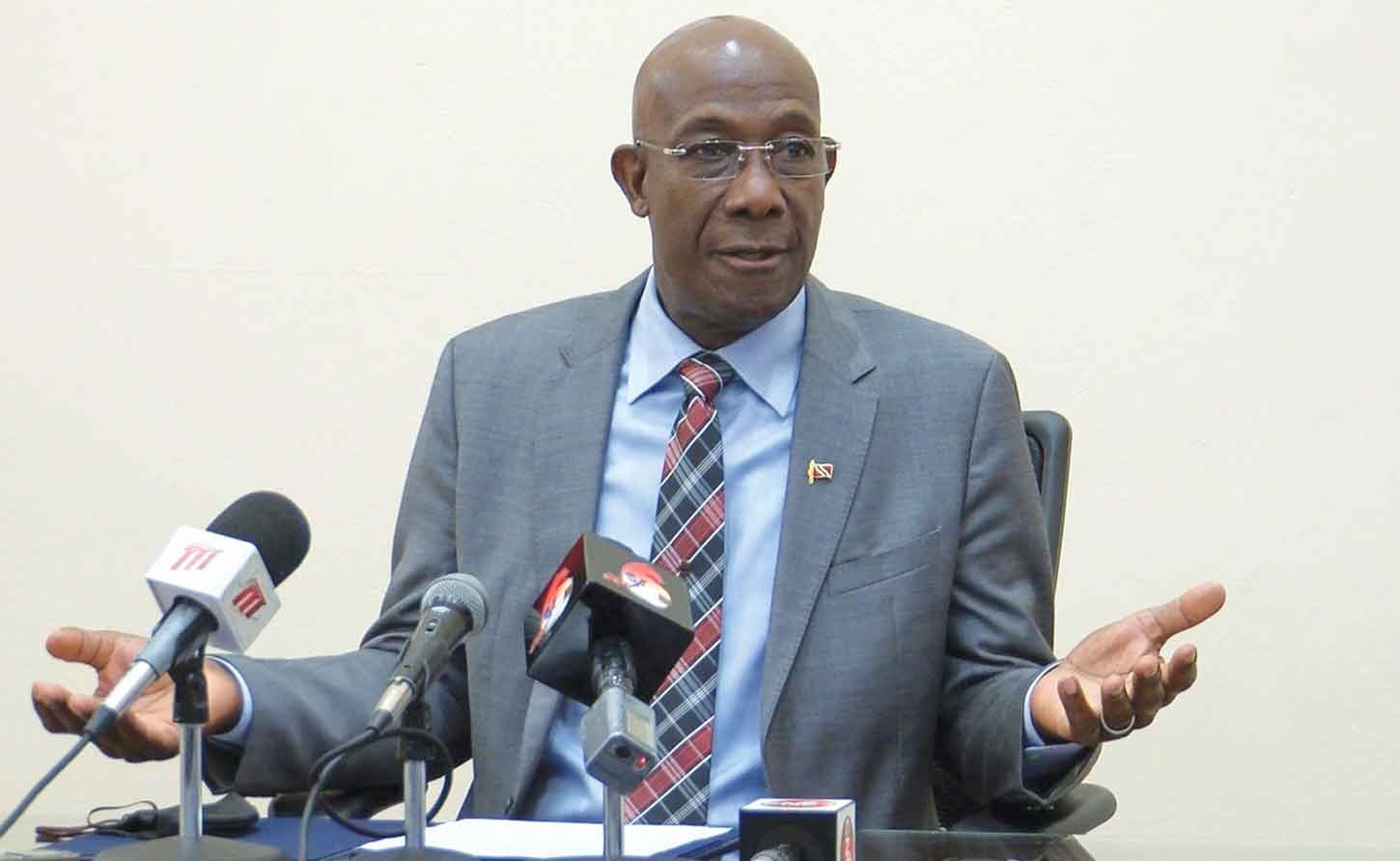TRINIDAD | Dr Keith Rowley: Former Trinidad PM's Interpol Nightmare in Antigua

Keith Rowley's Antigua airport ordeal exposes troubling questions about political persecution in post-election Trinidad
PORT-OF-SPAIN, Trinidad and Tobago, July 21, 2025 - What began as a scientific pilgrimage to mark three decades since Montserrat's volcanic devastation turned into a diplomatic crisis that has shaken Trinidad and Tobago's political establishment.
Dr. Keith Rowley, the country's former prime minister, found himself detained during a routine stopover in Antigua, his name flagged on an Interpol watch list as someone "allegedly involved in criminal activity."
The revelation, delivered with barely contained fury during a July 21 press conference at his home, has exposed what may be the most serious case of alleged political weaponization of international law enforcement mechanisms in recent Caribbean history.
Rowley branded the ordeal "a dastardly act of political persecution" and accused Trinidad and Tobago state entities of executing what he called a "vicious defamation" campaign.
However, acco0rding to the Trinidfad Express Newspaper, The Trinidad and Tobago Police Service (TTPS) said that the name of the former prime minister Dr Keith Rowley had not been placed on an INTERPOL watch list and that it remains “committed to protecting the rights and dignity of all citizens.
From Volcano to Vendetta
The irony could not be starker. Rowley, a trained geologist who stepped down from active politics in April, was traveling to Montserrat to participate in activities marking the 30th anniversary of the Montserrat Volcano Observatory Scientific Opening—a return to his roots as one of the Caribbean's few professionally trained volcanologists.
Instead of examining geological formations, he found himself confronting what he characterizes as a calculated attempt to destroy his international reputation.
"This is not just a mistake, it is a deliberate, calculated attempt to tarnish my name on an international stage," Rowley declared, adding that it constitutes "state-sponsored slander."
His central demand cuts through the diplomatic niceties: he wants Prime Minister Kamla Persad-Bissessar, Attorney General John Jeremie, and Police Commissioner Allister Guevarro to explain their role in his Interpol listing.
The Timeline of Suspicion
The chronology raises disturbing questions about the abuse of transitional power. Rowley resigned as prime minister on May 16, succeeded by then-energy minister Stuart Young, who announced the April 28 general election date just two days later. The UNC won decisively, securing 26 seats against the PNM's 13, with 2 others.
Within weeks of this electoral defeat, Rowley—who had publicly announced his return to volcanology—found himself effectively blacklisted from international travel.
The timing suggests either extraordinary bureaucratic efficiency in processing criminal allegations or something far more sinister: the systematic use of state power to neutralize a political opponent who had gracefully stepped aside.
Questions Without Answers
"What crime or interest do I pose that justifies this?" Rowley demanded. "Let the people of this country know what you are accusing me of—because I have done nothing wrong."
His challenge strikes at the heart of democratic accountability. In functional democracies, former heads of government don't simply vanish into international watch lists without transparent legal proceedings or clear public justification.
The silence from Persad-Bissessar's administration is deafening. No explanation has been offered for why a former prime minister—one who voluntarily relinquished power and announced his retreat from politics—would suddenly pose an international security threat worthy of Interpol intervention.
This absence of justification transforms what might have been a bureaucratic misunderstanding into a constitutional crisis.
The Interpol Trap
The choice of Interpol as the mechanism for this alleged persecution reveals sophisticated understanding of how to maximum damage while minimizing accountability.
Unlike domestic legal processes, which require evidence and due process, international watch lists operate in administrative shadows where individuals may find themselves flagged without prior notification, immediate recourse, or clear appeals mechanisms.
For a volcanologist whose professional activities require regional travel, an Interpol listing represents professional assassination by bureaucratic means. Rowley's stark warning—"If this can be done to a former prime minister, imagine what can be done to the average citizen"—highlights the broader implications for democratic governance in Trinidad and Tobago.
Caribbean Democracy Under Stress
The timing of this controversy is particularly troubling given recent regional commitments to international cooperation. CARICOM Heads of Government recently welcomed Interpol Secretary General Valdecy Urquiza as a special guest at their 49th Regular Meeting in Montego Bay, Jamaica, emphasizing "international cooperation, regional security, and crime prevention."
Yet here is a case where those very mechanisms of international cooperation may be facilitating what appears to be domestic political persecution. The irony undermines not just Trinidad and Tobago's democratic credentials, but the entire regional framework for peaceful political transitions.
The Precedent Problem
Rowley's allegations suggest a politically motivated attempt to compromise his reputation and professional mobility. If substantiated, this represents a dangerous evolution in Caribbean political competition—from electoral contests to post-election persecution using international law enforcement as a weapon.
The Caribbean has generally prided itself on peaceful democratic transitions. Rowley's case threatens to establish a precedent where electoral defeat is followed not by graceful opposition but by systematic character assassination through administrative channels.
The volcanic expertise that should have taken Rowley to Montserrat may prove less hazardous than navigating the political eruption now consuming his homeland. Until Trinidad and Tobago's government provides answers, the questions will continue to burn.
-30-
